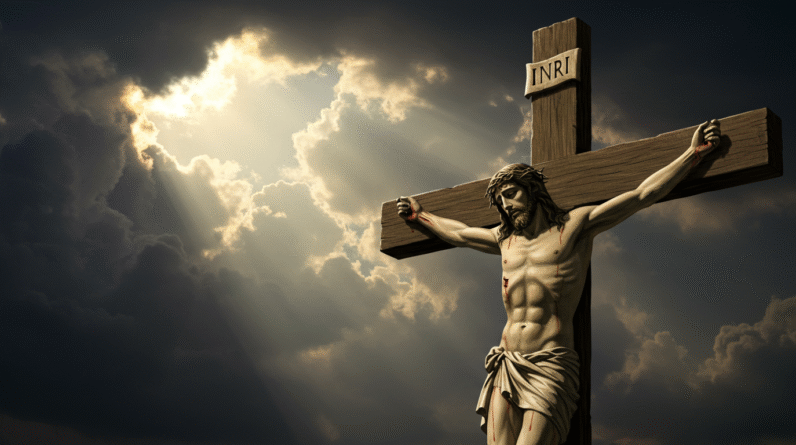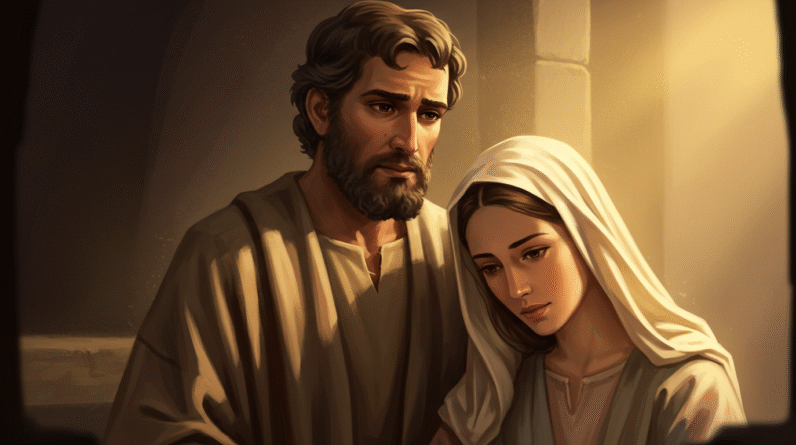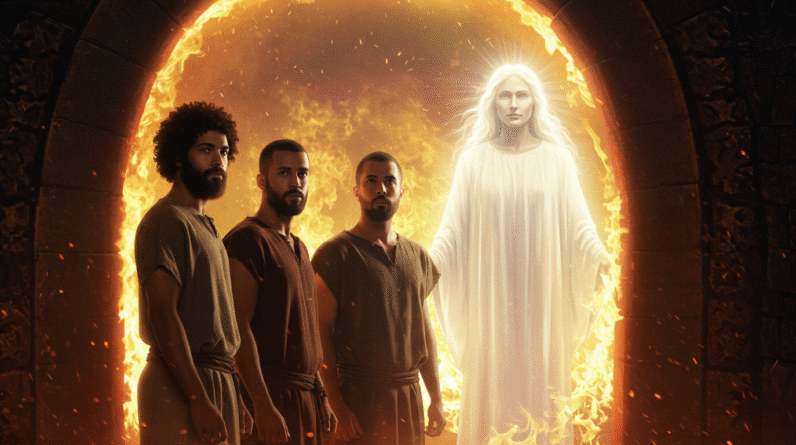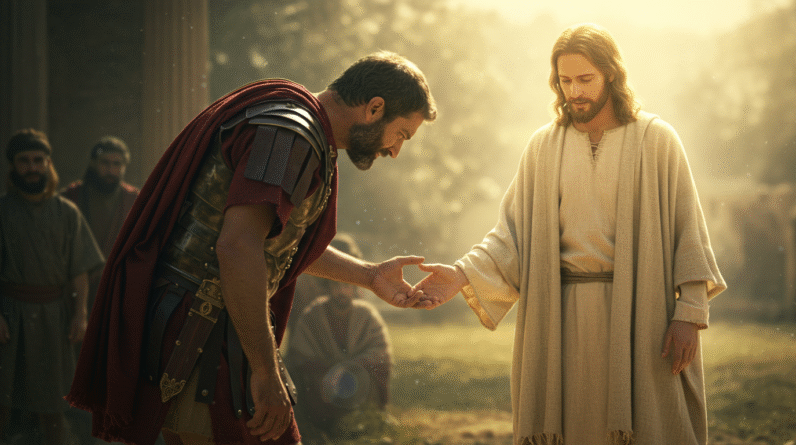Explore the profound tales of sacrifice in Genesis 22:9-14 & John 15:13. Delve into faith, love, and selflessness through the stories of Abraham, Isaac, and Jesus.
Sacrificial Characters – Genesis 22:9-14; John 15:13
In the beautiful tapestry of stories that make up the Bible, certain characters emerge not only as pivotal figures of faith but also as enduring symbols of sacrifice. Genesis 22:9-14 and John 15:13 introduce us to moments of profound personal and spiritual sacrifice, shedding light on what it means to offer oneself for something greater. Here, you’ll explore how these narratives intersect and the sacrificial characters within them who embody the ultimate act of selflessness and devotion.

Abraham and Isaac: The Test of Faith
Genesis 22:9-14 plunges us into one of the most intense and perplexing episodes in the Bible—the story of Abraham and Isaac. Imagine being Abraham, moments away from sacrificing his beloved son Isaac, against the harsh backdrop of Moriah. Abraham, chosen by God to be the father of nations, was suddenly faced with the unimaginable. He had already left his homeland at God’s command, venturing into a future unknown. Now, his faith was being stretched to the absolute limit: Would he sacrifice his only son, the fulfillment of God’s promise?
This passage doesn’t merely showcase Abraham as a diligent patriarch; it lays bare the depth and complexity of his faith. When you picture Isaac on that altar, realize that both father and son embody different dimensions of sacrifice—Abraham’s internal turmoil and resolve; Isaac’s implicit trust and surrender. Their story isn’t just about obedience but about testing the bounds of human trust and divine fidelity.
Their Story in the Bible
Let’s dive deeper into the narrative of Abraham and Isaac. Abraham, long promised by God to be the father of a multitude, finally received his son Isaac in his old age. This miracle child represented God’s covenant, his faithfulness personified. Yet, in a staggering divine command, God asked Abraham to sacrifice Isaac as a burnt offering on Mount Moriah. Think about the journey of three days they took to reach the destined mountain, a journey filled with ominous silence and anticipative dread.
During their trek, Isaac inquires about the absence of a sacrificial lamb, to which Abraham responds, “God himself will provide the lamb for the burnt offering, my son.” Their story crescendos at the mountain’s peak, as Abraham builds an altar, binds Isaac, and prepares to perform the unthinkable. Yet, on the brink of action, an angel halts him, and a ram is provided as the sacrifice instead. This pivotal moment fortifies Abraham’s place as a father of faith, and in return, God reaffirms His promise to Abraham—blessings that would echo through history.
Lessons from Their Life
Abraham and Isaac’s story imparts timeless lessons, which resonate profoundly in today’s world. First, the narrative underscores the profundity of trust and obedience in the divine. Abraham’s testing teaches you that surrender to God’s will, however paradoxical it might appear, is ultimately rooted in faith in His purposes.
Moreover, Isaac’s silent submission offers a lesson in humility and trust. His resilience reflects a deep-seated belief in his father’s wisdom and the presence of a higher plan. Their story invites you to question: In which situations are you called to make sacrifices for the greater good? How do you discern God’s voice amidst life’s uncertainties?
Connection to Today’s World
In today’s rapidly shifting world, marked by trials that test personal faith and resilience, Abraham and Isaac’s story remains profoundly relevant. Whether you are facing professional challenges or personal sacrifices, their narrative invites you to look beyond immediate circumstances and trust in a broader divine purpose. The idea of sacrifice in the modern sense ranges from everyday acts of kindness to giving up personal ambitions for the sake of family or community well-being. By anchoring your decisions in faith and principle, you channel the spirit of Abraham and Isaac in navigating life’s unpredictable landscape.
Key Bible Verse
“Do not lay a hand on the boy,” he said. “Do not do anything to him. Now I know that you fear God because you have not withheld from me your son, your only son.” – Genesis 22:12
This verse captures the climactic moment of divine intervention and revelation. It epitomizes the profound acknowledgment of faith and fear of God, where Abraham’s willingness to sacrifice his son is reciprocated by God’s providence.
Thought-Provoking Question
Reflect for a moment: What are you willing to place on the altar to follow a path of faith and trust, even when the outcome is obscured?
Jesus: The Ultimate Sacrifice of Love
Another figure whose life embodies ultimate sacrifice is Jesus, portrayed in John 15:13 with a profound declaration: “Greater love has no one than this: to lay down one’s life for one’s friends.” This assertion crystallizes Jesus’ mission and preempts the selfless love manifested in his eventual crucifixion—where he laid down his life not just for friends, but for humanity at large.
His Story in the Bible
Within the New Testament accounts, Jesus becomes the emblem of sacrificial love. His ministry, marked by compassion, miracles, and teachings, journeys inexorably toward the cross. From calling out societal injustices to nurturing a new covenant with humanity, Jesus walked amongst us, exemplifying love that transcends comprehension.
Jesus’ ultimate act of sacrifice was not a detached event; it was intricately tied to his life’s narrative, which is embodied by love, service, and surrender to God’s will. In the face of betrayal, abandonment, and crucifixion, Jesus stood unyielding, encapsulating the truth that the greatest act of sacrifice stems from the deepest love.
Lessons from His Life
The life and ultimate sacrifice of Jesus offer invaluable lessons. Foremost, Jesus teaches about love that is boundless and self-giving, urging you to prioritize others’ well-being. Moreover, his story is a testament to his unwavering commitment to purpose and mission, compelling you to stand firm on principles even amidst adversity.
You’ll also find a lesson in the power of forgiveness. Jesus’ sacrificial death was the apex of a life lived forgivingly, reminding you to extend grace even to those considered adversaries or betrayers. His life asks you: How will you incarnate love in actions, and whom are you called to forgive?
Connection to Today’s World
In a world rife with conflict and division, Jesus’ sacrificial character provides a compelling blueprint for transformative living. His call to lay down one’s life translates into daily acts of kindness, standing up for others, and embodying love in your community. Today, challenge yourself to live intentionally, cultivating love, justice, and peace, just as Jesus exemplified through his journey.
Key Bible Verse
“Greater love has no one than this: to lay down one’s life for one’s friends.” – John 15:13
This verse succinctly encapsulates the pivotal theme of sacrificial love, shining as a beacon that guides believers toward understanding their call to love and serve.
Thought-Provoking Question
Consider this: In what ways are you called to demonstrate sacrificial love within your relationships and wider community?
Comparisons and Connections
When you compare Abraham’s readiness to sacrifice Isaac with Jesus’ self-sacrifice, both stories reveal spiritual depths. Abraham’s story aligns with God testing faith, whereas Jesus embodies love’s fulfillment. Together, they present a framework: faith inspires action, while love necessitates sacrifice. They encourage you to explore your call to faith and love and how they intersect in your journey.
Historical/Cultural Context
Stepping into these stories, it’s essential to grasp the cultural landscapes. Ancient Near Eastern traditions revered the act of sacrifice as pivotal in communicating with the divine. Our contextual understanding today enriches how you perceive the enormity of Abraham’s obedience and Jesus’ transcendent love in their respective environments.
A Prayer for Understanding
Lord, as we reflect on the sacrificial lives of Abraham, Isaac, and Jesus, we seek strength to emulate their faith and love. Lead our hearts to trust your purpose and embrace sacrificial love in our daily interactions. Amen.







